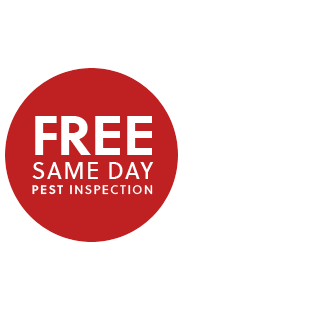Spring is time for aphids
Spring brings warmer temperatures. After this winter’s abundant rain, it also brings greener lawns and blooming flowers and plants. It also welcomes a lawn-related pest that is a sticky nuisance for homeowners – aphids.
Aphids are small, rapidly reproducing insects that can give birth to a dozen offspring in one day. These insects feed by sucking valuable nutrients from plants and trees, reducing their ability to bloom and threatening their overall health.
Aphids secrete honeydew – a sticky, sweet substance – which attracts ants and other insects. This substance can turn up on the leaves of bushes and trees, and on fences, patio surfaces, outdoor furniture, and car windshields. Another clue that aphids are present is that leftover honeydew will grow a black sooty mold on surfaces where it occurs.
Clark, your friendly pest, mosquito, termite, and rodent control – and grounds care – expert, says this winter’s rainfall and warm temperatures will provide aphids with more readily available sources of food this spring, and potentially will increase aphid pressure around homes.
The honeydew conundrum
The honeydew that aphids secrete is also attractive to California’s number-one nuisance pest – ants. Honeydew is rich in sugar, which is important for ant survival, as it provides an energy boost when they become more active in the spring.
Argentine ants, the most numerous ant species in the state, are attracted to honeydew, as are other commonly encountered species, including odorous house, pavement, little black and fire ants.
Bees, flies, and wasps also feed on honeydew. It’s understandable that you might be alarmed when you see noticeable pest activity in a shrub, only to find out that there is no nest, and the insects there are only eating the extra honeydew off the vegetation.
Preventing aphids
You can prevent aphids from becoming a problem in your yard by doing the following:
· Monitor your plants regularly: Keep an eye on your plants and check for aphids regularly, particularly on new growth, tender shoots, and the undersides of leaves.
· Practice good plant hygiene: Remove any dead plant material, fallen leaves, or debris from around your plants. This will reduce hiding places for aphids and other pests.
· Don’t try to wash them away: You shouldn’t hose down bushes or trees that have aphids, as ants will only return with new aphids.
· Use exclusion practices: Caulking around windows, doors, vents, pipes, and electrical lines will help keep aphids and other crawling or flying pests from getting inside.
Pest control and grounds care solutions from Clark Pest Control
Clark’s specialists will design a customized pest control and grounds care program that will protect your home inside and outside from pests and weeds. Call or text us at (800) WE-NEED-YOU (936-3339) or email us at clarkcares@clarkpest.com.
Until next time, the pest management professionals at Clark Pest Control thank you for h


